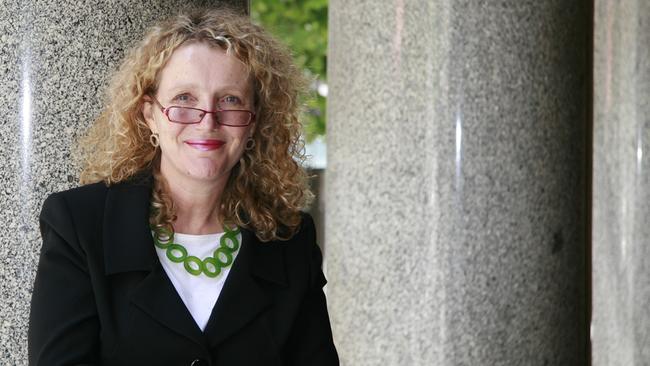ACCC warns of higher health insurance premiums as inflation bites
The competition watchdog has warned Australians to brace themselves for higher health insurance bills as staff shortages and cost rises put pressure on premiums.

Australia’s competition watchdog has warned of higher health insurance premiums in coming years, citing labour shortages and rising wage costs across the healthcare industry, in a report to the Senate.
The Australian Competition and Consumer Commission also criticised a deal the former Morrison government struck with medical device companies to lower the cost of artificial knees, hips and other prostheses, saying it will likely have a “distortionary impact”.
In the past year, Australians have paid the lowest health insurance premium increases in more than 20 years, while some have paid none at all after many funds froze annual rises as part of their commitment not to profit out of the Covid-19 pandemic.
But as hospitals and other healthcare providers battle chronic labour shortages – including hiring enough nurses to run crucial services such as maternity wards – and wages rise, the ACCC has warned it will likely put pressure on health insurance premiums.
“Current inflationary pressures may lead to higher premium increases in the future,” the ACCC said in its report.
“The 6.1 per cent annual rise in consumer price index (CPI) inflation for 2021–22 was the largest rise since the introduction of the goods and services tax and was driven by higher fuel prices and dwelling construction costs. More specifically … the private hospital industry faces staff shortages which could drive higher wage costs.”
But the ACCC said cumulative premium increases in the past five years had tracked higher at 16.6 per cent compared with healthcare inflation and wages growth, which have risen 15.3 and 11 per cent respectively during the same period.
“This shows that the cumulative increase in premiums over the 5 years to June 2022 has outpaced the other metrics, particularly wage growth.”
In total, Australians paid almost $26.6bn in premiums last year – an increase of more than $910m, or 3.5 per cent, on 2020-21. Meanwhile, the number of people taking out private health insurance increased 0.8 per cent.

At the same time, the ACCC report found that health funds paid 4.5 per cent less in hospital benefits per policyholder, while extras payouts fell 5.4 per cent as pandemic rules restricted access to elective surgery and other procedures.
But health funds have not been banking the difference. Of the $2.25bn in “pandemic savings” – or claims that will not materialise as a result of Covid-19 – health insurers have so far returned $2.2bn to members, via cash rebates, premium deferrals and other “givebacks”.
ACCC deputy chair Delia Rickard said she expected health funds to continue to return cash to members in the months ahead.
“We expect them to continue doing so until all financial benefits from claims permanently missed due to Covid-19 restrictions are returned,” Ms Rickard said.
“Insurers must ensure that any funds allocated for measures such as hardship support or coverage extensions are used by policyholders. If not, those funds should be returned through direct approaches such as payments or premium relief.”
The ACCC criticised a deal former health minister Greg Hunt signed with medical device companies in March to rein in prostheses cost, given the agreement contained a “floor” for all products. This means prostheses benefits cannot be reduced to below 7 per cent above the weighted average price paid in the public system.
“While the ACCC welcomes efforts to reduce the underlying cost of prostheses, the ACCC notes that the MoU’s floor on prostheses benefit reductions is likely to have some distortionary impacts on prices for medical devices in private healthcare,” the ACCC said in its report.
“Specifically, this floor will lead to some Prostheses List benefits remaining inflated when
compared to prices paid for prostheses in the public system.”
The rise in healthcare costs has fuelled tension between health insurers and hospitals. Earlier this year, Australia’s biggest private hospital group Ramsay threatened to terminate its funding contract with Bupa after they failed to agree on cost increases.
Ramsay and Bupa salvaged their agreement shortly before it was set to expire in August. But tempers flared again last week when Australia’s second biggest private hospital operator Healthscope said it would terminate its funding agreement with Sydney-based not-for-profit HCF after a breakdown in talks.
The health insurance lobby has previously warned of double digit premium increases if funds caved to hospital demands, while hospitals say the quality of care they provide could be compromised if they are not funded appropriately.






To join the conversation, please log in. Don't have an account? Register
Join the conversation, you are commenting as Logout